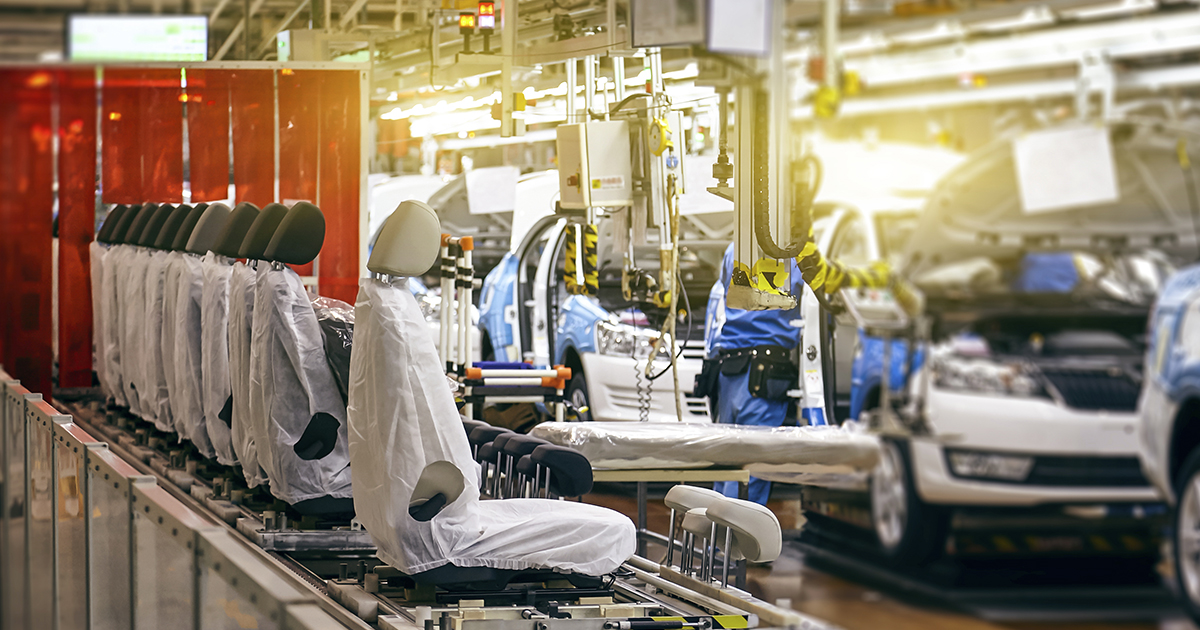It is hard to picture life without electronic devices, isn’t it? It is no surprise then that it is Mexico’s second largest industry and one of the most relevant across the globe.
The truth is that it is a complex sector. It performs an important role in exports and imports, both of raw materials, labor, parts, and finished products that move from one place in the globe to another. Thus, logistics is essential for such an industry and represents up to 20% of the total cost of products.
The electronics sector is growing explosively together with the technology industry, which it is a part of.
It is not just about the exchange between the great powers, where electronics and tech companies are taking advantage of the opportunities presented by emerging markets; it is also about how demand patterns are changing as fast as the electronic devices themselves.
Because of the above, the challenges for logistics raise exponentially and frequently.
Mexico’s Undersecretary for Foreign Trade, Luz María de la Mora, said it better: “We cannot think about improving competitiveness without logistics, efficient transportation services, efficient loading services, financial services, and telecommunication services.”[1]
In consequence, keeping track of this industry is a task of modern logistics.
In fact, it has been so as both industries evolve. In Mexico, for example, tariff-free shipping at the border and reverse logistics processes have been key for this industry to remain competitive globally.
But there are even more bets the logistics industry is placing to be the ideal ally for the electronics industry’s meteoric rise.
Connecting markets, shortening times
Logistics is currently taking advantage of the benefits of global markets to shorten shipping times by exploring regional supply centers and creating client-based supply chains, among other solutions.
Even though North America remains a large market, demand in the emerging markets is expected to increase up to 20% in countries and regions such as Brazil, India, the Middle East, Africa, and South America in general; which is a factor for the future exponential growth of logistics.
Changing the supply patterns
The demands of this industry are forcing the logistics sector to double its efforts to eliminate long shipping terms. Thus, domestic or regional supply strategies have been adopted, which let us improve customer service besides delivering products faster.
Operating a more diverse and flexible supply network is helping electronics companies match the rhythm of consumers and the demands of their products’ life cycles.
In other cases, the industry is betting on optimizing inventories or on implementing a fast planning technique.
Improving the service
In a digital market, where empowered buyers can comment and review instantly, companies are building client-based supply chains.
For a large portion of executives, the response capability is directly linked to customer service and is a decisive factor for changing the supply chain.
From its efforts to lower shipping time to its use of new tech tools that speed up the logistics processes or improve the visibility of in-transit shipments, the logistics sector has found ways to improve customer service and must continue finding new ways.
Minding the environment: reverse logistics
New regulations and pressure from retailers are forcing manufacturers of electronic products to embrace greener practices, from reducing the use of dangerous materials and lowering emissions, to recycling packaging. However, there is still plenty to do in the supply chains of electronics, particularly in how we manage returns and recycling: reverse logistics.
On the one hand, dynamic routing is a powerful way to move inventory to places where it is in demand; on the other hand, many companies are outsourcing reverse logistics, setting up processes to move returned products to low-cost collection and repair centers all around the globe. Many are doing this by changing the focus of direct-to-client reverse logistics, which has a relative low cost, to one centered on retail partners.
To recover recyclable pieces or to carry out repairs, clients typically take their devices to a store that gathers all the returns and sends them back to a 3PL company that carries out an initial assessment and sends them to the repair shops as necessary. Thus, instead of using the 3PL’s infrastructure just to manage processes, we can increase our response efficiency and lower inventory stock by moving the initial sorting and refurbishing the returned products closer to clients. We can also use several 3PL companies and multiple return channels and methods without adding exponentially higher costs and achieving greater speed, efficiency, control and flexibility.
. . .
Taking advantage of other markets, modifying supply patterns to achieve optimal efficiency, and improving customer service is just the beginning.
Lastly, most players in this industry believe they can improve their exports and imports processes; thus, the challenges and opportunities to increase the efficiency of logistics and of the supply chain will be a constant.
[1] http://t21.com.mx/logistica/2019/05/24/4t-define-futuro-mexico-fabrica-global-logistica
.jpg)




